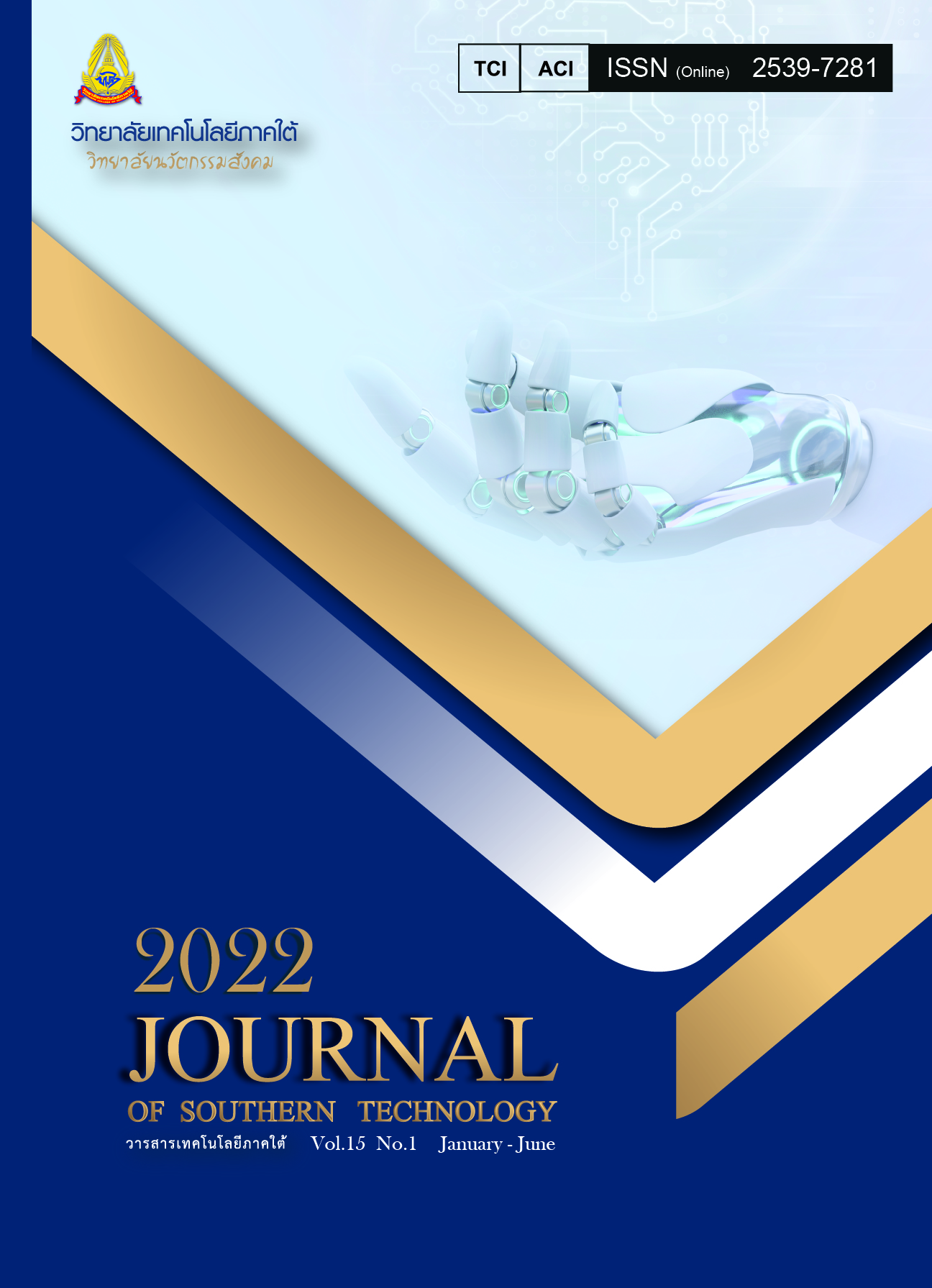An Evaluation of Fundamental English Course: Everyday English Reading and Writing Course
Main Article Content
Abstract
In English Language Teaching (ELT), it is necessary procedure to offer students demanding, suitable, and updated courses that help develop their English potential. Therefore, English teachers should evaluate the course quality continually. The primary purpose of this study was to investigate students' perceptions of the foundation English course at Prince of Songkla University, Surat Thani Campus. The participants were 134 first- and second-year students who enrolled in the Everyday English Reading and Writing course during the second semester in the academic year 2020. The researchers used a questionnaire and a semi-structured interview to collect data on students' perceptions of six aspects of course evaluation: Course Objectives, Textbook and Supplementary Materials, Teacher and Teaching Methods, Assessment and Evaluation, Learning Environment, and Course Benefits. The study also examined the problems that the students encountered in the course. The quantitative data were analyzed using descriptive statistics and the qualitative data were analyzed with content analysis. The findings show that the students were satisfied with all aspects at a high level except the Learning Environment, with which they were satisfied at a moderate level. The results from the interviews indicate that the classroom learning materials were insufficient, and the class size was large, making it easy to be distracted from the lessons. Furthermore, the students had different levels of English proficiency. Therefore, it would be advisable for the university to provide appropriate courses for each level of competence.
Article Details

This work is licensed under a Creative Commons Attribution-NonCommercial-NoDerivatives 4.0 International License.
-
Authors must agree to the journal publication rules and allow the editors to edit the manuscripts for publication.
-
Author’s right belongs to the author but Journal of Southern Technology holds the right of first publication and thus allow readers to use the article for the purpose of education but not commercial.
References
Al-Subaiei, M.S. (2017). Challenges in mixed ability classes and strategies utilized by Eli teachers to cope with them. English Language Teaching, 10(6), 182-189.
Best, J. W. (1981). Research in Education (4th ed.). NJ: Prentice Hall.
Brown, D. J. (1986). Language Program Evaluation: A Synthesis of Existing Possibilities. Trends in Language Program Evaluation: Papers Presented at CULI’s First International Conference. Bangkok: Chulalongkorn.
Brown, H. D. (2000). Teaching by Principles: An Interactive Approach to Language Pedagogy (2nd ed.). New York: Longman.
Darasawang, P. (2007). English Language Teaching and Education in Thailand: A decade of Change. English in Southeast Asia: Varieties, Literacies and Literatures. Newcastle D. Prescott (ed.) Cambridge Scholars Publishing.
Doll, R.C. (1996). Curriculum Improvement (9th ed.). Boston: Allyn and Bacon.
Fleischman, H. L., & Williams, L. (1996). An Introduction to Program Evaluation for Classroom Teachers. Retrieved August 14, 2011, from http://teacher pathfinder. org/School/Assess/assess.html.
Foley, J. A. (2005). English in Thailand. RELC Journal, 36(2), 223–234.
Gbrich, C. (2007). Qualitative Data Analysis: An Introduction. London: Sage Publications.
Golafshani, N. (2003). Understanding reliability and validity in qualitative research. The Qualitative Report, 8(4), 597-606.
Jimakorn, P., & Singhasiri, W. (2006). Teachers’ beliefs concerning large-class english teaching at the university level. KMUTT Journal of Language Education, 9, 13-23.
Jinghui, S. (2019). English as a lingua franca: a new approach for English language teaching in China?. Chinese Journal of Applied Linguistics, 42(1), 113-135.
Madtathawee, J. (2011). An Evaluation of Fundamental English Reading and Writing Course Provided at Prince of Songkla University, Hatyai, Thailand (Master’s Thesis), Prince of Songkla University. [in Thai]
Noom u-ra, S. (2013). English-teaching problems in Thailand and Thai teachers’ professional development needs. English Language Teaching, 6(11), 139-147.
Nunan, D. (1985). Language Teaching Course Design: Trends and Issues. Adelaide: National Curriculum Resource Centre.
Phukanchana, T. (2018). Thai students’ demotivation and remotivation in an advanced EFL writing class: a case study of english major students at Ramkhamhaeng University. Ramkhamhaeng University Journal Humanities, 37(1), 47-72. [in Thai]
Rea-Dickins, P., & Grmaine, K. (1992). Evaluation. Oxford University Press.
Richards, J. (1984). Language curriculum development. RELC Journal, 15(1), 1-29.
Sinlarat, P. (1981). Principles and Methodologies in Teaching Higher Education Level. Bangkok: Thaiwattanapanich Company Ltd. [in Thai]
Tipmontree, S., & Tasanameelarp, A. (2019). Using role playing activities to improve Thai EFL students’ oral English communication skills. International Journal of Business and Society (IJBS), 21(3), 1215-1225. [in Thai]
Xerri, D. (2017). Using questionnaires in teacher research. The Clearing House: A Journal of Educational Strategies, Issues and Ideas, 90(3), 65–69.
Xu, Z. (2001). Problems and strategies of teaching English in large classes in the People’s Republic of China. In A. Herrmann and M. M. Kulski. (Eds.), Expanding Horizons in Teaching and Learning. Proceedings of the 10th Annual Teaching Learning Forum, 7-9. February 2001.Perth: Curtin University of Technology. http://lsn.curtin.edu.au/ tlf 2001/html
Weir, C., & Roberts, J. (1994). Evaluation in ELT. Oxford: Blackwell Publishers.
Zhou, J. (2017). English Teaching and Learning Problems in the General Program of Potisarnpittayakorn School (Master’s Thesis), Thammasat University.

